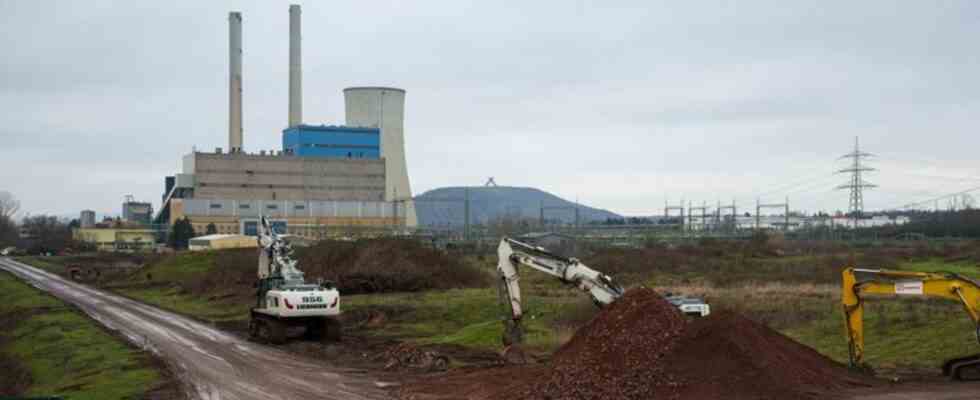electronics
US group wants to build modern chip factory in Saarland
The plant is to be built at the former Ensdorf coal-fired power station. photo
© Oliver Dietze/dpa
It’s a big day, especially for Saarland. In the future, high-tech products are to be manufactured on the site of a former coal-fired power plant.
The US group Wolfspeed wants to build a modern chip factory in Saarland. The world’s largest production plant for silicon carbide electronics is planned, as the company announced. Wolfspeed plans to start building the factory in the first half of 2023, subject to EU Commission approval. When fully operational, the factory will employ more than 600 people.
The factory is to be built on the site of the disused Ensdorf coal-fired power station. Chancellor Olaf Scholz (SPD) and Federal Minister of Economics Robert Habeck (Greens) also wanted to present the project.
Wolfspeed said the company’s first manufacturing facility in Europe is a key part of a comprehensive $6.5 billion capacity expansion plan. More than $2 billion of that would go to the new plant alone, according to a presentation to investors in October 2022.
A “groundbreakingly innovative” development and manufacturing facility will be created to serve the growing demand for silicon carbide for a variety of applications in the automotive, energy and other industries, according to Wolfspeed. Silicon carbide enables smaller, lighter and less expensive systems for more efficient energy conversion for countless new uses.
EU Commission approval required
Wolfspeed CEO Gregg Lowe said the new facility will be critical to supporting expansion in an industry that is both struggling with bottlenecks and growing very rapidly, particularly in the electric vehicle market. The supplier ZF will support the new building with an investment as part of a new strategic partnership.
It said the Wolfspeed factory is planned as part of a joint European microelectronics project and is subject to the approval of government funding by the European Commission.
The EU supports business projects in microelectronics. The aim is to bring semiconductor production back to Germany and Europe and not become too dependent on Asian manufacturers, for example.
Last year, the US group Intel announced that the latest generation of chips would be produced in Magdeburg from 2027. In a first expansion stage, two semiconductor factories are to be built there, which could create several thousand jobs.

